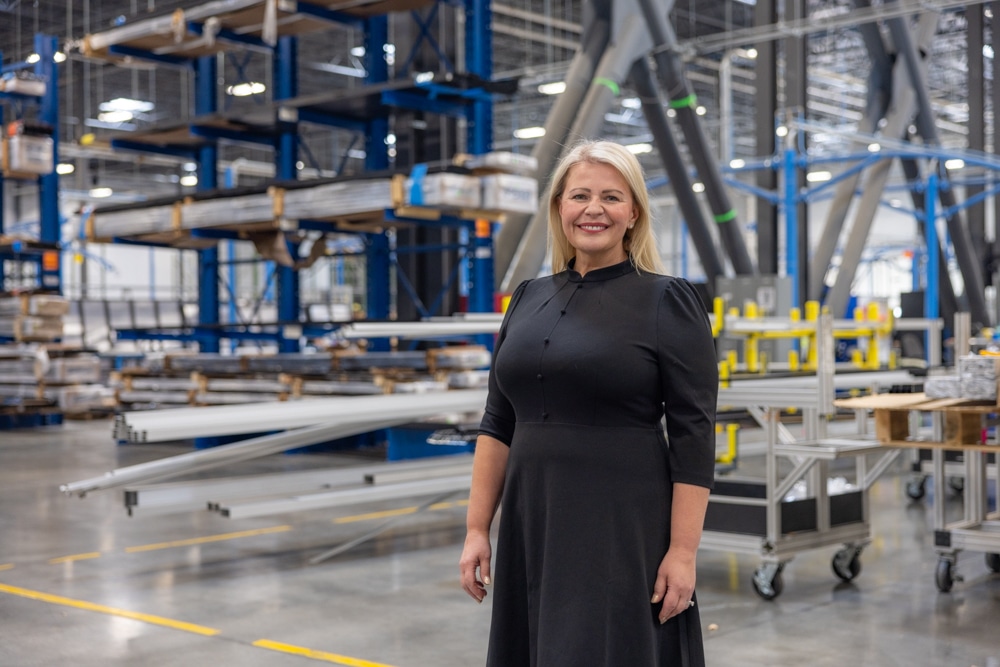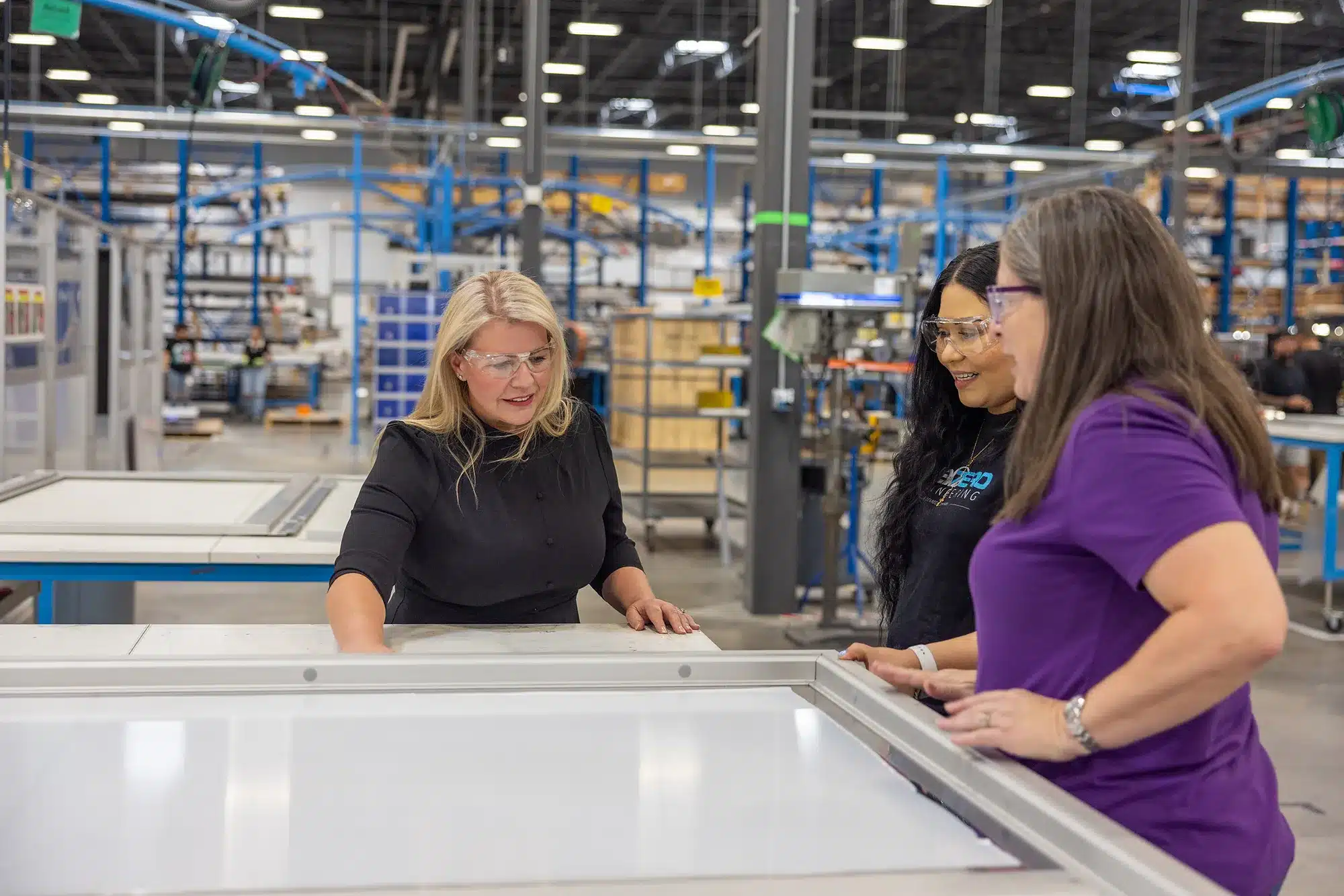Author Robert J. Bowman
Featured interview with Jane Neil on supplychainbrain.com

Jane Neil: Charting a Course for Women in Engineering and Supply Chain
Jane Neil is a pioneer. She’s one of the first women to go to sea in the British Navy, employed aboard ship as an electrical engineer. After six years of service, she entered the private sector, parlaying her skills and training into her current position as supply chain manager with Subzero Engineering, a provider of turnkey services and systems for data centers, industrial cleanrooms and other mission-critical environments. So how did Neil achieve success in a world that remains overwhelmingly male? On this episode, she tells how she augmented her technical background to acquire skills in organization, network, communication and negotiation — all crucial to success in supply chain — over a 30-year career. And she has advice for how we can bring more women into the field, through early exposure and awareness, active learning, and mentoring. Hosted by Bob Bowman, Editor-in-Chief of SupplyChainBrain.
Breaking Barriers Across Three Decades
When Jane Neil first stepped aboard a British Navy vessel as an electrical engineer, she wasn’t just starting a job—she was making history. As one of the first women to serve at sea in this technical capacity, Jane embarked on a journey that would span more than three decades, eventually leading her to her current role as Supply Chain Manager at Subzero Engineering, a Senneca company providing mission-critical systems for data centers and industrial cleanrooms.
Recently featured on SupplyChainBrain’s podcast with Editor-in-Chief Bob Bowman, Jane shared insights from her groundbreaking career and offered practical advice for increasing female representation in traditionally male-dominated fields like engineering and supply chain management.
From Military Precision to Supply Chain Excellence
Jane’s six years in the British Navy provided more than just technical expertise. The military’s emphasis on discipline, attention to detail, and performance under pressure formed a foundation that would serve her well in the private sector.
“The transition from military to civilian work presented its own challenges,” Jane explains in the podcast. “But I found that my technical background gave me credibility, while the organizational skills I developed in the Navy were directly transferable to supply chain management.”
At Subzero Engineering, Jane oversees complex supply chains for environments where failure is not an option. Data centers and cleanrooms require components that meet exacting specifications, delivered exactly when needed—a perfect application of both her engineering knowledge and military-honed precision.
Building Beyond Technical Skills
Throughout the interview, Jane emphasizes that technical expertise alone isn’t enough for supply chain leadership. She identifies four additional skill areas that have been crucial to her success:
- Organizational excellence – The ability to coordinate multiple moving parts, anticipate bottlenecks, and develop contingency plans
- Network development – Building relationships with suppliers, internal teams, and industry peers
- Communication prowess – Translating technical requirements into clear directives and explaining complex situations to diverse stakeholders
- Negotiation tactics – Finding win-win solutions when competing priorities emerge
“These aren’t ‘soft skills’—they’re essential skills,” Jane notes. “And they’re areas where many women naturally excel, though they’re often undervalued compared to technical abilities.”
The Path Forward: More Women in Technical Roles
The statistics remain stark: women are significantly underrepresented in both engineering and supply chain management. Throughout the podcast, Jane offers actionable strategies for addressing this imbalance:
Early Exposure and Awareness
“We need to show young women what’s possible before they make educational choices that close doors,” Jane says. She advocates for industry partnerships with schools, bringing female engineers and supply chain professionals into classrooms as early as elementary school.
Subzero Engineering participates in this effort through our annual “Engineering Explorers” program, which introduces middle school students to various engineering disciplines through hands-on activities led by our team members, including Jane.
Active Learning Opportunities
Jane highlights the importance of internships, job shadowing, and project-based learning that give young women practical experience in technical fields. “Theory is important, but actually doing the work—solving real problems and seeing the impact—that’s what creates passion,” she explains.
Mentorship at All Levels
Perhaps most importantly, Jane emphasizes the power of mentoring relationships—not just for new entrants to the field, but throughout one’s career.
“I’ve been both mentor and mentee at different stages, sometimes simultaneously,” she shares. “Even now, I have a mentor who helps me navigate executive-level challenges, while I mentor several younger women who are navigating early and mid-career decisions.”
The Business Case for Diversity
While much of the conversation focuses on creating opportunities for women, Jane also articulates the clear business benefits of diverse teams in technical and supply chain roles.
“Homogeneous teams have blind spots,” she notes. “When everyone approaches problems from similar backgrounds and perspectives, you miss innovative solutions. I’ve seen firsthand how diverse teams deliver better results—not just in theory, but in measurable outcomes like cost reduction, supplier relationship improvement, and crisis management.”
Reflections from a Thirty-Year Journey
Looking back on her career path from naval engineer to supply chain leader, Jane offers encouragement to women considering technical fields.
“The challenges are real, but so are the opportunities,” she says. “I’ve had moments of doubt, especially early on when I was frequently the only woman in the room. But for every closed door or skeptical colleague, I’ve found allies, mentors, and leaders who valued my contributions based on merit rather than gender.”
Her advice to companies wanting to increase gender diversity? “It’s not enough to say you value diversity. You have to actively create conditions where women can thrive—from recruitment practices to advancement opportunities to workplace culture. The companies that get this right don’t just benefit women; they gain competitive advantage.”
Learn More from Jane’s Interview
Jane’s full interview on SupplyChainBrain’s podcast, “Advocating for More Women in Engineering and Supply Chain Management,” offers additional insights on:
- Practical tips for women navigating male-dominated workplaces
- Specific strategies for reducing bias in hiring processes
- The evolution of supply chain management over three decades
- How technical backgrounds enhance supply chain decision-making




